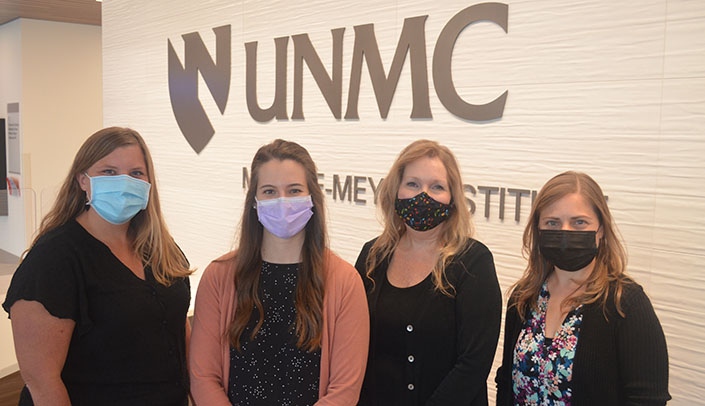A team of genetic counselors from the MMI Department of Genetics will have its research published in a coming issue of the Journal of Genetic Counseling focusing on COVID-19.
Lead author Brianna Rezich and her team, with help from department director Omar Rahman, MD, surveyed patients during the pandemic to discover how the COVID-19 crisis was affecting them, as well as gauge their reaction to the telehealth genetic counseling services that were implemented as safety measures during the pandemic.
"We created the survey that looked at a cross-section of patients, exploring how they felt the quality of care was, the positive and negative aspects of telehealth and the stressors they were under," Rezich said.
The six-person research group included counselors from every genetics department specialty, including pediatrics, prenatal, cancer, and adults, Rezich said.
The headline? Slightly more than 50% of patients across all specialties said they would prefer to continue to receive genetic counseling by telehealth in the future.
"This patient population included people who were not previously offered a telehealth option," Rezich said.
Patients reported that the advantages to telehealth – especially from their own home – were attractive.
"Not having to drive to a clinic," Rezich said. "Not having to wait. Making it easier for both parents to join – even if one is at work, they may be able to step away for the appointment."
As far as patient stressors, patients identified as much less stressed than Rezich and her team expected, and a lot of that was due to pandemic safety concerns.
"Overall, we found our participants didn’t have a high level of anxiety or depression — about 38% of patients said they were anxious, 11% said they were depressed. Of course, we don’t have a good comparison for what those values looked like prior to the pandemic," Rezich said. "The most prominent common stressor was fear of illness, 33%, followed by loss of job – very pandemic-specific stressors."
The survey results may impact how the genetics department delivers counseling services – even though genetics already was one of MMI’s most successful telehealth providing departments.
"We were fortunate that we had quite a bit of experience using telehealth for our outreach clinics, so we had the foundation for what was needed," Dr. Rahman said. "But we still had to sort out performing telehealth directly into the home. Learning from one another and talking through issues together allowed the team to move into this new practice model really well. And this same collaborative spirit drove this research project."
"The fact that we could transition so well over the course of a week or two in March (2020) was really rewarding to us as a team, and it changed a lot of our thoughts about how telemedicine could work," Rezich said. "This survey just further supports that."
The paper was the first effort by this group to engage in a research collaboration, Rezich said. The acceptance and journal publication already has the group brainstorming future collaborative research projects.
"We had a lot of support from our co-workers," Rezich said. "It’s a department goal to be more involved in research, especially as genetic counselors. So we are excited for the future."

Nice job Genetic Medicine!